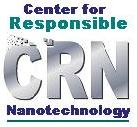2006 Guardian Award Winners
An announcement from the Lifeboat Foundation (Note: I'm on their Board of Scientific Advisors):
The Lifeboat Foundation Guardian Award is annually bestowed upon revered scientists or public figures who have heralded the coming of a future fraught with danger and encouraged provision against its perils. This year's recipients are Robert A. Freitas Jr. and Bill Joy, who have both been proposing solutions to the dangers of advanced technology since 2000, two years before the formation of the Lifeboat Foundation.
Robert A. Freitas Jr. is a Lifeboat Foundation Scientific Advisory Board member and a Senior Research Fellow at the Institute for Molecular Manufacturing. He is author of the Nanomedicine book series, the first book-length technical treatment of the medical implications of molecular nanotechnology. Volume I: Basic Capabilities, was published by Landes Bioscience in October 1999; Volume IIA: Biocompatibility, was published by Landes Bioscience in October 2003.
In 2004, he coauthored Kinematic Self-Replicating Machines with Ralph C. Merkle. While others were debating whether self-replicating nanotechnology was possible, Rob took action and described the 137-dimensional map of the replicator design space which suggests a large number of ways that replicators can be preemptively disabled or rendered incrementally safer. This map for defense is the first list of its type that has ever been compiled, and it is very extensive. Recommendations for desired/undesired replicator characteristics (relative to safety) drawn from this list could be used in a very specific regulatory regime for machine replicators.
His upcoming "Molecular Manufacturing: Too Dangerous to Allow?" which will be published in the journal Nanotechnology Perceptions in March 2006 and his upcoming "What Price Freedom?" in the same journal in May 2006 discuss the implications of a future with advanced nanotechnology. [Both essays were written by Rob as a member of the CRN Global Task Force.]
Rob advocates "An immediate international moratorium, if not outright ban, on all artificial life experiments implemented as nonbiological hardware. In this context, 'artificial life' is defined as autonomous foraging replicators, excluding purely biological implementations (already covered by NIH guidelines tacitly accepted worldwide) and also excluding software simulations which are essential preparatory work and should continue. Alternative 'inherently safe' replication strategies such as the broadcast architecture are already well-known."
Bill Joy joined the venture capital firm Kleiner, Perkins, Caufield & Byers (KPCB) as Partner in January 2005. One of Silicon Valley's best-known VC firms, KPCB was an early investor in Amazon.com, America Online, Compaq, Electronic Arts, Genentech, Google, Lotus Development, and Sun Microsystems.
Bill was Cofounder and Chief Scientist of Sun Microsystems. He led Sun's technical strategy from the founding of the company in 1982 until September, 2003. While at Sun, he was a key designer of Sun technologies, including Solaris, SPARC, chip architectures and pipelines, and Java. In 1995 he installed the first city-wide WiFi network. He has more than 40 patents issued or in progress.
Before cofounding Sun, Bill designed and wrote Berkeley UNIX, the first open source operating system with built-in TCP/IP, making it the backbone of the Internet. His many contributions were recognized in a Fortune cover story which called him the "Edison of the Internet".
In 2000, he wrote "Why the future doesn't need us: Our most powerful 21st-century technologies — robotics, genetic engineering, and nanotech — are threatening to make humans an endangered species" in Wired magazine. This well publicized article included quotes such as "I think it is no exaggeration to say we are on the cusp of the further perfection of extreme evil, an evil whose possibility spreads well beyond that which weapons of mass destruction bequeathed to the nation-states, on to a surprising and terrible empowerment of extreme individuals.", "An immediate consequence of the Faustian bargain in obtaining the great power of nanotechnology is that we run a grave risk — the risk that we might destroy the biosphere on which all life depends." and "...if our own extinction is a likely, or even possible, outcome of our technological development, shouldn't we proceed with great caution?"
In 2003, he wrote "Hope Is a Lousy Defense" in Wired magazine. In 2005, he and 2005 Guardian Award winner Ray Kurzweil wrote the editorial "Recipe for Destruction" in the New York Times in which they argued against publishing the recipe for the 1918 influenza virus.
In 2006, while others were debating whether a bird flu pandemic or other biological disaster was likely, Bill took action and helped launch a $200 million fund directed at developing defenses against biological viruses. The goal of the KPCB Pandemic and Bio Defense Fund is to accelerate innovations for worldwide pandemic preparedness and global health over the next three years, with a focus on surveillance and detection, diagnostics, vaccines and drugs. He also advised on Lifeboat Foundation's web design in 2006.
CRN congratulates Rob and Bill for their strong voices and their many
accomplishments. Whether or not we always agree with them, we
appreciate their passionate concern for the future of humanity.
![]()
Tags: nanotechnology nanotech nano science technology ethics weblog blog




Very cool. Robert Cringely's intereview of Bill Joy on NerdTV is worth checking out if you haven't seen it. Joy's a very interesting guy working on some very interesting stuff.
Posted by: Ed Kohler | March 19, 2006 at 06:46 PM